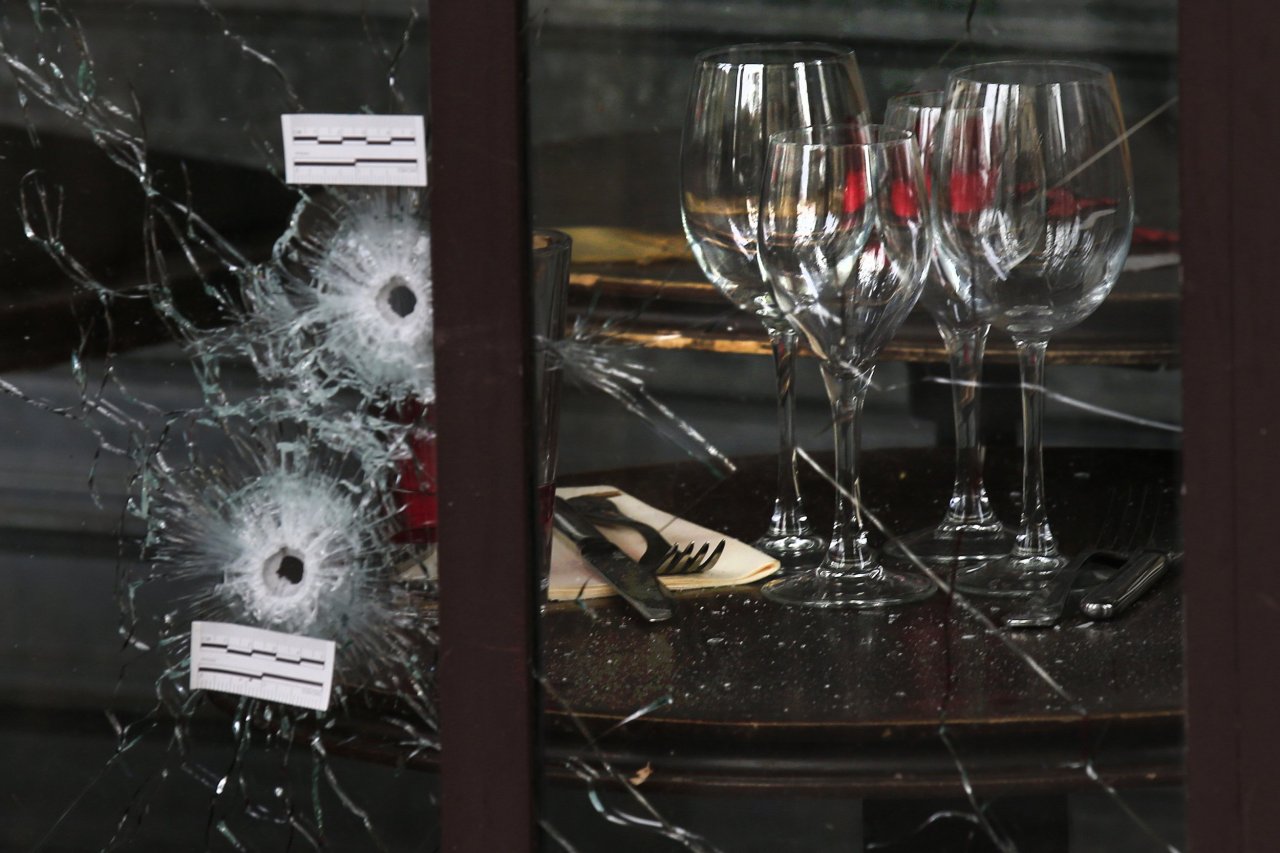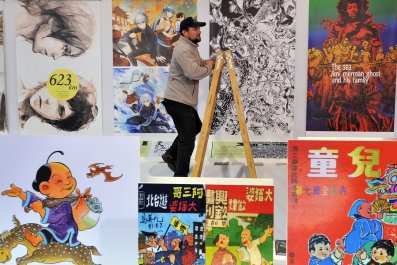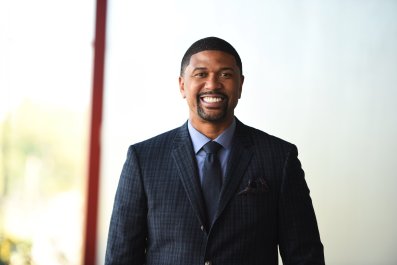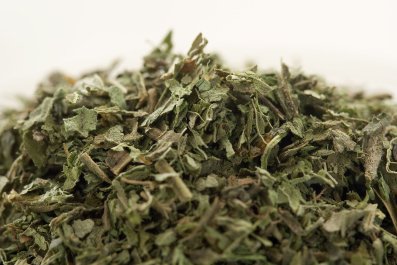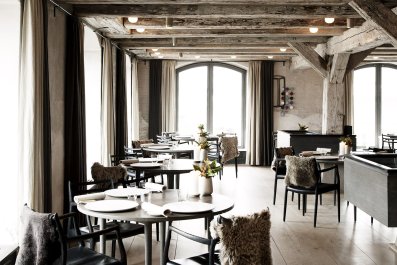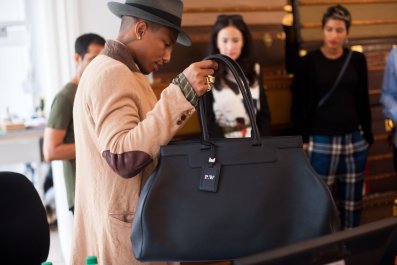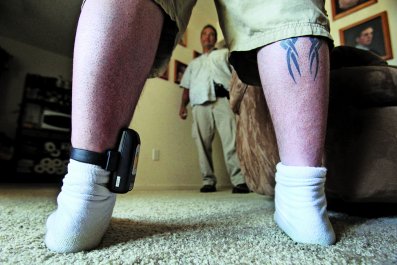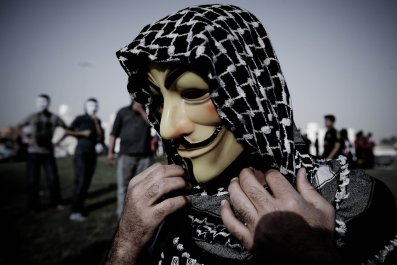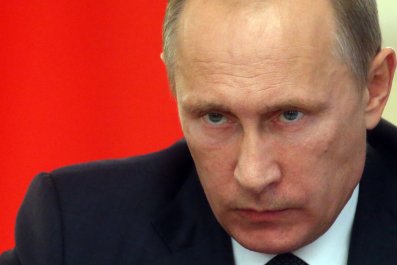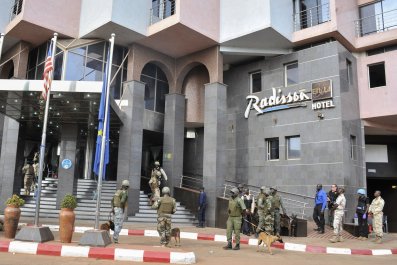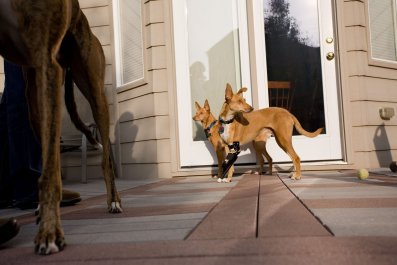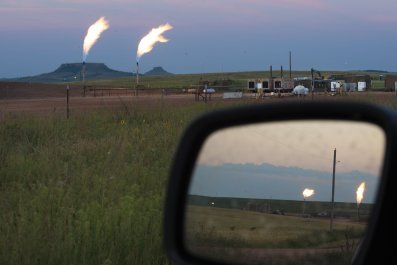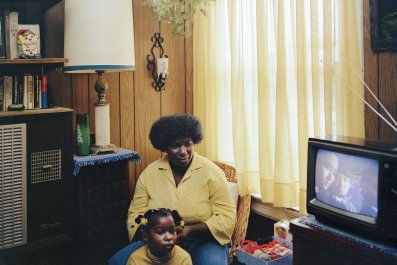Updated | I came out of the elegant building at Place Vendome Friday morning with a dull feeling. While I was in the middle of judging a prestigious photojournalism prize for Paris Photo, a yearly festival of art here in Paris, I had an urgent text on my phone: Jihadi John is dead, killed by British and American drones in Raqqa.
Jihadi John murdered my colleagues, Jim Foley and Steve Sotloff. He beat and tortured and humiliated and finally beheaded them. But was I rejoicing the end of his brutal life? No. I just felt dread. I have worked for too long in war zones and on the issue of radicalization and terrorism to think that his death will end in Raqqa.
I took a taxi home to the quiet Left Bank arrondissement where I have lived with my son for a dozen years, but I felt uneasy. Would the Syrian war be exported to Europe? With the rising tide of desperate refugees crossing borders, was the balance of Europe being tipped? Would there be retributions for the French involvement in the anti-ISIS coalition?
I took the train to London on Friday evening to appear on a BBC news program to discuss these fears and analyse the Syrian war and its far-reaching consequences. I was on the train when I heard the news of the attacks in Paris, my home.
It was startling and heartbreaking, but not altogether surprising. I was not a Cassandra: Most people in my circles in Paris have felt for several months that a terrorist attack was imminent. It was not a matter of if, but when.
I am American-born, British-raised and half Italian, but French by nationality. The day I got my French passport, I realized I was part of a society and a culture that was proud, but above all valued liberty and freedom of expression. After Friday night's killings, this will change: Civil liberties in France will never be the same. There will be heightened surveillance against targeted individuals, which will raise questions about discrimination and the encroachment on individual rights.
Paris has been my sanctuary after reporting for Newsweek from Syria, Egypt, Tunisia, Lebanon, Iraq and Afghanistan. Even after the Charlie Hebdo attacks in January, I always felt safe here. It is a city where you could take the metro at midnight; where once people accept you, you find deep and lasting friendships.
But there is a deeper layer to France than the beauty of the city. Having worked on stories about the Muslim integration in Europe, I was well aware of the fact that France lagged behind in terms of assimilation. I reported on the 2005 riots in Paris, and I listened to the voices of young, French Muslims who felt they were alienated and had no future or no hope.
In 2004, when my son was born, I wanted to name him Lounès, after a gifted Algerian singer, Lounès Matoub who was assassinated in 1998. But the Franco-Algerian war and the history of French colonialism is a tender topic. A French friend warned me, gently, that it might not be wise to give my offspring an Arabic first name.
Then, I did not understand. But the longer I lived in France, the more I saw two faces: the disenfranchised Muslim and African youth, who found it impossible to penetrate society; and the white, quiet French quartier where I live.
What does it mean when war comes to your home? The killers did not target glitzy Paris. They targeted ordinary people out for a night of fun: at a football match; at a hip Asian restaurant; and a youthful club where for many years I loved to go and listen to good music.
For me, the images of the young girl trying to escape through a window of the Bataclan were the most chilling: Her only crime was to want to go hear a band play on a Friday night. The killers struck France when its guard was down, when people were having fun on the first night of the weekend.
My concerns, as a French citizen, are for the future. How do we go forward in these times, when war can come to your city as quickly as a curtain drawing closed? Aside from personal worry—my son's school being targeted, returning to daily life, taking the metro without feeling vulnerable—I worry about the extreme right wing that already had a foothold in France.
These attacks will make Marine Le Pen of the National Front Party and her foot soldiers—the mayor of Béziers, Robert Ménard, a former human rights activist who now advocates keeping Syrian refugees out of public sight— even more popular and powerful.
Paris is grieving, but it is proud. It will recover. But my concerns are larger. The seven terrorists did not only cause maximum damage by murdering 129 people and injuring 352. They opened up a layer of vulnerability that will take France, and Europe, to a new level of defense.
We are no longer secure. The frontlines of the Syrian war are not only in Aleppo and Idlib. They have now shifted to Europe.
Correction: An earlier version of this article incorrectly referred to the year of the riots in Paris. The year was 2005, not 2004.


